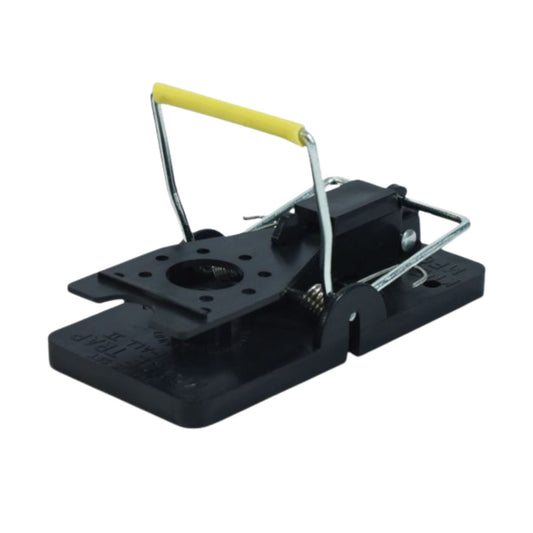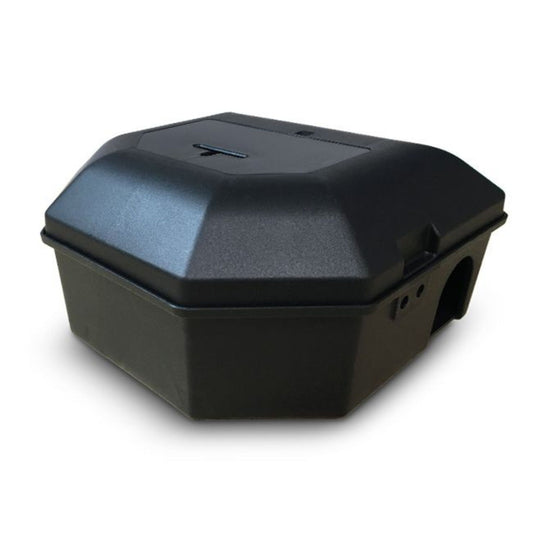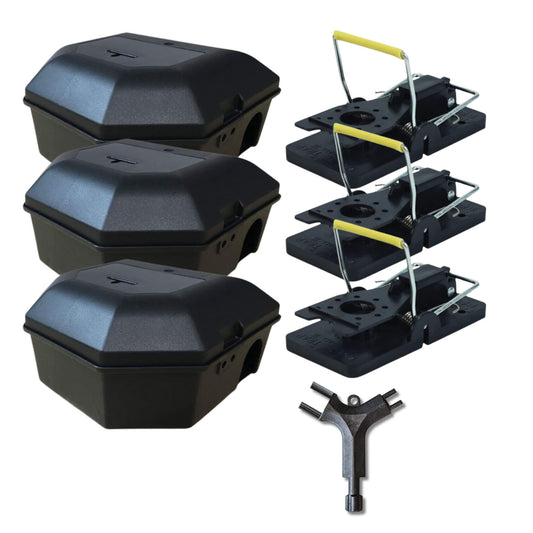
Why Have I Got Mice in My House? 10 Common Reasons
Share
Have you ever wondered why you have mice in your house?
The answer isn't always as straightforward as you might think. However, there's a good chance your behaviour might be what's causing them to enter your home.
From overlooked gaps to forgotten crumbs, there are various ways mice could've taken up residence. Here are 10 common reasons you might have a mouse problem, and what you can do to prevent it including mouse-proofing your home.
Quick check:
If mice are getting in, it's usually food + shelter + an entry gap. Start here:
- Food: wipe crumbs, store food/pet food in sealed containers, empty bins nightly.
- Shelter: clear clutter (especially under sinks, behind appliances, in lofts).
- Entry points: look for gaps around pipes/air bricks/door thresholds - mice can squeeze through very small gaps.
- If you want the full step-by-step removal plan, jump to our expert guide to getting rid of mice.
#1 Access to Food Sources
Mice aren't picky eaters. They'll nibble at pretty much anything they can find. Leftover food, crumbs on the floor, open food containers, and even unsealed pet food can become an easy treat for a hungry mouse.
It's important to keep all food securely stored and the kitchen tidy. Good food storage practices can keep mice away, as they won't be able to find any easy meals.

#2 Too Much Clutter
A cluttered home offers a perfect setting for mice to hide and build nests. From piles of laundry to stacks of old newspapers, anything left undisturbed can become a mouse's favourite hiding spot.
Clearing the clutter can deter mice from sticking around and make it easier to spot signs of their presence, such as droppings and gnawed items.

#3 Accessible Gaps and Holes
Mice can squeeze through incredibly small openings — around 5mm in some cases — so tiny gaps around pipes, doors and air bricks can be enough. Holes in the wall, gaps in the foundation, and cracks in windows and door frames offer easy access points for these pests.
The best way to stop this is to seal these openings. Use mouse proofing products like rodent-proof mesh (or similar proofing material) plus a quality sealant to close gaps, stop re-entry and safeguard your home.

#4 Poor Waste Management
Improper waste management can attract mice and other pests searching for a meal. This includes leaving bins out uncovered or rubbish piling up outside.
Regular rubbish removal and the use of sealed bin liners and bin containers can prevent the enticing scent of rubbish from luring mice.

#5 Access to Warmth and Shelter
When temperatures drop, mice will seek out the warmth of a building, and homes provide the perfect environment. Inaccessible attics and basements can easily become nesting grounds. This is especially the case when there's undisturbed storage or rubbish.
Regularly check these areas and ensure they're properly insulated and free of the materials mice use to make their nests.

#6 Access to Pet Food
Pet food that is left out all day and can easily be accessed by mice.
To avoid this, feed pets at specific times and remove any uneaten food promptly. Consider storing pet food in airtight containers made of glass or metal to make it unattractive and inaccessible to mice.

#7 Access to Water Sources
Like any other living creature, mice need water to survive. Leaky faucets, condensation, and even water bowls left out for pets can serve as a hydration station for these invaders.
Fixing leaks and keeping the area around water sources dry can deter them from establishing a water supply in your home.

#8 Neglected Repairs
Neglected structural repairs can create an opportunity for mice. Loose siding, deteriorating roofing, and damaged screens or vents are open invitations for them to find a way in.
Regular inspections, maintenance and repairs are important. They can help keep mice at bay and protect your home against the elements.

#9 Outdoor Environment
The landscaping and exterior of your home can play a role in attracting mice. Overgrown shrubs and trellises can create pathways to the house. What's more, woodpiles provide both shelter and a potential food source.
Keeping the perimeter clear and maintained can make your property less attractive to mice.

#10 Nearby Infestations
Sometimes it's not about your home at all. If a neighbour has a mice problem, it could easily spill over into your property.
In such cases, community action and additional preventative measures may be necessary. They can help to address the issue and keep mice away from your home.

What to do next (simple plan):
- Remove attractants (food, clutter, water)
- Proof entry points
- Trap to clear what’s already inside
Follow our full step-by-step: How to get rid of mice yourself.
Final Thoughts
Understanding why mice might be drawn to your home is the first step in preventing growing infestations. By taking proactive measures and keeping your living space clean and well-maintained, you can greatly reduce the risk of mice. Remember, a few simple changes can make a world of difference and stop you from asking why you've got mice in your house.
We go to great lengths to ensure that all our DIY mouse control products are effective, fast & easy-to-use. You may also find our expert guide useful if you want to learn more about getting rid of mice from your home or workplace.






